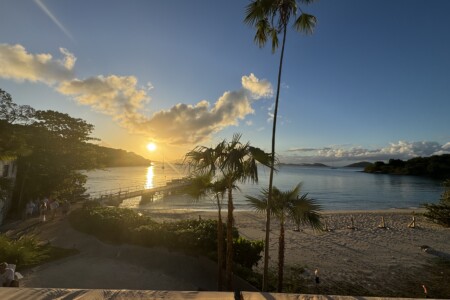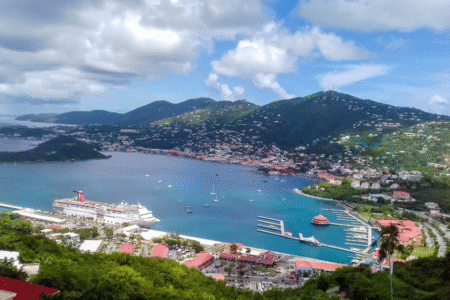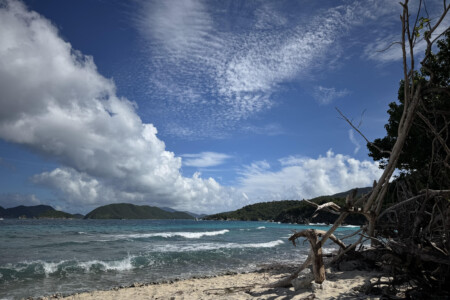Your Right as a Tenant
- June 25, 2025
- Real Estate, Text Blog
The idea of renting a home in paradise may seem like a dream — but when it comes to life in an island... Read More

Owning a home in St. John, U.S. Virgin Islands would no doubt be a dream come true but we will give you some factors to consider when planning your new purchase that most home buyers do not deal with on the mainland. These are some things that you should keep in your mind while doing it:
1. Understand the Market
Research Property Values: Find out average property values in St. John where there is less real estate than many other Caribbean destinations you may be considering. Because oceanfront or view property is limited and so many people want to live in this kind of area, the prices are higher.
Work with a Local Real Estate Agent: Make sure you bring an agent on board who understands the intricacies of St. John properties They will know the inside information about the most available properties in your area of interest; understand the island and help guide you through this complex process. 340 Real Estate is always there to help anyone who is looking to buy property in St. John.
2. Know the Areas
Cruz Bay: Largest center for shopping, dining, and where the ferries come in. This only applies to a fraction of the properties where living here is not as cheap but they get accessibility.
Coral Bay: Quieter, with more of a local feel and an expanding expat community. It is further out, which might be a positive or refresh if you like to get away.
East End and North Shore – Home to mansions with a view. Here, the homes are typically more private.
3. Learn About Ownership of Land and Title Complication
Search the Title: Make sure exhaustive research is done about this title. Because of the clouded land ownership history in the Virgin Islands, some properties may have unclear title.
Zoning Laws: Know your local zoning laws, especially if you are building. While some areas are prohibited from new construction so the island’s natural beauty can be preserved.
4. Budget for Additional Costs
Property Taxes: Though the mainland U.S. tends to have higher property taxes, they can still be substantial, particularly for more expensive properties in a place like USVI.
Insurance: Hurricane insurance is practically a necessity in St. John, and it can be expensive. Plan for this in the budget since you need to put a moat around your own castle as well.
Maintenance: Properties on an island may need extensive upkeep due to the tropic temperatures prevalent on it. Roof, exterior, and landscape maintenance: Regular roof, exterior paintwork (if required), and landscaping are necessary to keep the extreme weather at bay.
5. Consider Access and Utilities
Utilities: Electricity and water are more expensive on the island. Water may come from cisterns in some homes, and electricity is more expensive than on the mainland.
Accessibility: Location away from the main roads will cost more both to establish and then maintain access. However certain remote regions might need a vehicle that is 4WD.
6. Plan for the Future
Resale Value: In addition, while St. John properties do tend to appreciate, think about what new infrastructures and/or changes in the local economy could inhibit such a resale value uptick.
Rental Potential: What is the potential for renting out your property when you are not using it; do some research on how holiday rentals work. Since St. John is a tourist hotspot, short-term rentals are very profitable.
7. Understand Legal Requirements
Financing: Local banks are great for land loans, and construction loans. There are lots of stateside companies licensed to loan in the USVI.
Property Taxes in the USVI: Property taxes are levied based on a property´s assessed value as well, and depending if it is used for residential purposes or rented out will be subject to different tax rates.
Closing costs: These can see an attorney fee, title insurance and government fees. Include these in your overall budget!!
8. Environmental Considerations
Hurricane Risk: St. John is in a hurricane-prone area so keep this in mind when factoring construction of the home Strongly built homes with hurricane shutters are also preferential.
Eco-Friendly Living: Numerous properties in St. John are eco-sustainable, and owned with green and environmentally conscious practices. This means solar panels, water cisterns, and energy-efficient appliances.
9. Visit the Property Multiple Times
Visit During Different Times of the Day: Tour the property at different times of the day. This will help you understand what condition the property is in and also the surrounding area.
Talk to Neighbors: You can ask about local issues, the vibe of your future community, and so on.
10. Get Professional Advice
Retain a Local Lawyer: Legal work related to buying property in the USVI is best done by an attorney located in St. John.
Inspection: USVI has several licensed home inspectors and we as a real estate company always encourage buyers to use licensed home inspectors.
These tips will help you to be an informed buyer so that your home purchase in St. John is a sweet and successful experience rather than anything else.
We 340realestate company is always there to make the home buying process easy for our customers. Feel free to call (340-643-6068) or email us (www.340realestateco.com)

The idea of renting a home in paradise may seem like a dream — but when it comes to life in an island... Read More

Picture waking to the sound of waves, spending your afternoons snorkeling coral reefs and hiking through the National Park and, come sundown,... Read More

If you’ve ever fantasized about living in a tropical paradise, St. John in the United States Virgin Islands might just be whispering your... Read More
Log in
Please enter your username or email address. You will receive a link to create a new password via email.
Join The Discussion